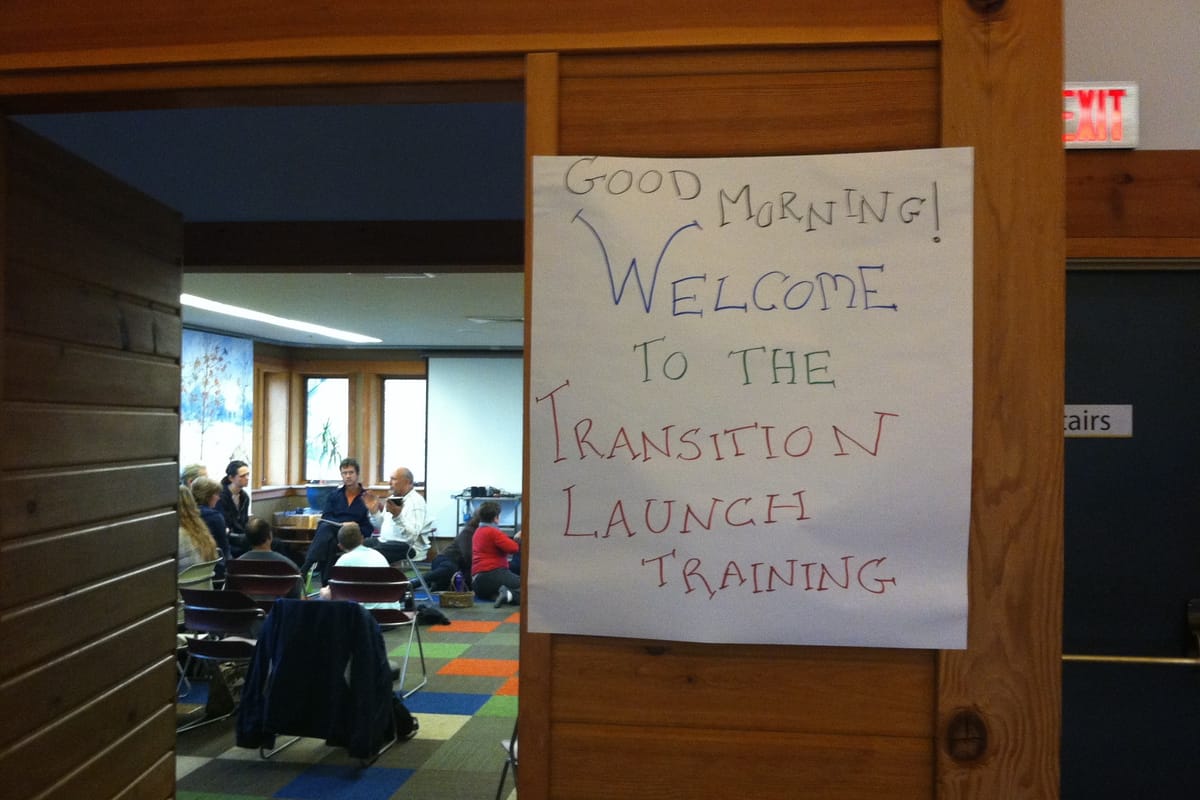Host a Training

Build meaningful relationships, develop collective leadership, and catalyze regenerative action by hosting a Transition Training in your local community.
If you’re interested in potentially hosting a Transition Training in your local community, check first if you have a national or regional hub in your area that coordinates trainings. If there is, please contact them directly. If there isn’t, you can either search for Transition Trainers in your area here or fill out this form to receive support from our international Training Coordinator.
Although every training is different, here are some things potential hosts should keep in mind:
Benefits of Hosting
- Hosting a training can be used to help launch a new initiative or reenergize an existing one.
- Trainings also enable community-building and facilitate deep bonding among participants.
- Transition Trainers have been certified to deliver high-quality courses and workshops based on best practices developed and refined over the past two decades by the international Transition Towns Movement.
- Whether you partner with Transition Network or another Transition Hub, you will receive support for organising and promoting your training.
- Once all costs are covered, your initiative is welcome to keep whatever profits remain to fund your programs and activities. This can be substantial.
Responsibilities of Hosting
- It's your responsibility to negotiate equitable compensation with the trainers you select. For courses longer than one day, we typically recommend hiring two co-trainers. In addition to a set fee, compensation also usually includes travel, lodging, and food for trainers.
- You'll need to secure a suitable venue for the training that reflects the values of the Transition Movement. While no place is perfect, this generally means that the training location meets everyone’s basic needs, is committed to just and sustainable practices, has at least some natural light, and provides access to nature.
- Depending on the location and format of your training, you may need to provide food and drink, lodging, and transportation for participants as well. It's always recommended that there are at least basic refreshments available throughout the training.
- Some hubs will be able to help you with registration, but others will expect you to handle that yourself. Those hubs that do provide assistance usually require a small percentage fee to cover the costs of coordinating this.
- Although most hubs offer promotional support, hosts are primarily responsible for course publicity.
- You may also be asked by trainers to make photocopies of handouts and provide necessary equipment such as flip charts and white boards with markers, a projector and screen, computer speakers, etc.
Other Financial Considerations
- As host, you're responsible for covering all costs related to training. To ensure all trainings at least break even, we usually set a minimum number of registrations that are required for the course to run, and if that minimum hasn't been met a month in advance of the training, it's cancelled. While the vast majority of courses fill easily and it’s unusual to have to cancel a training, to give yourself the best possible chance of success, we recommend you begin promoting your training at least three months in advance.
- Although you're free to determine how to price registration, we strongly suggest that you set the standard price at a level that will cover your costs while remaining as affordable as possible. We also suggest that you provide full or partial scholarships for everyone who requests one and invite those who can to donate to a scholarship fund.
- Selecting trainers who are as close to you as possible can help minimise travel costs and environmental impact. You can also reduce expenses by seeking out a free or discounted venue and asking local participants to host trainers in their homes.
